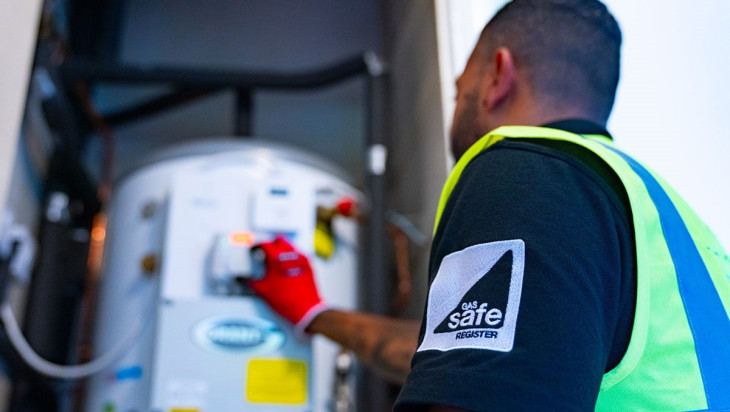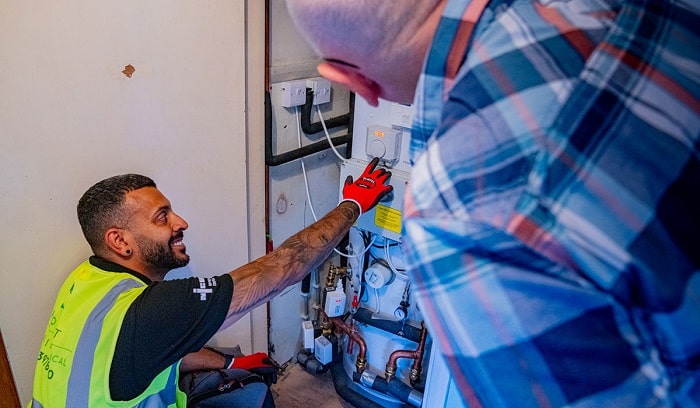
Like all other appliances and gadgets, the efficiency of a boiler tends to decrease with time. With excessive usage, especially during the colder months, it starts developing faults, despite being regularly serviced and maintained. At this point, running the old boiler might be uneconomical, as the cost of repair and maintenance tends to increase manifold. So, that’s the stage when it becomes necessary to replace it with a new one.
When replacing your old boiler is essential, its proper disposal becomes even more critical. Disposal of an old boiler involves many considerations, such as convenience, safety, and compliance with regulatory and legal requirements. As a responsible citizen, you have obligations towards environmental protection. Old boilers have different components, which may include metallic and electrical parts. Above that, it may even contain various hazardous materials, such as asbestos, especially in very old models. The presence of all such materials and components necessitates that an old boiler be handled with extra care, while fulfilling your legal and environmental responsibilities.
Let us explore how homeowners and businesses can safely dispose of an old boiler while complying with legal requirements.
The useful life of a boiler is often considered to be 10 to 15 years. However, a boiler would need replacement, irrespective of its age, if it is no longer safe and has lost its efficient performance. Another crucial aspect is the cost of repair. As a general rule, a boiler should be replaced when its overall repair cost exceeds half of the price of a replacement unit.
Replacing an old boiler can be a considerable expense, but it can significantly improve the energy efficiency of your home or business. Hence, it is crucial to consider replacing an old boiler in the presence of one or more of the following conditions:

Old boilers come under the category of WEEE, "Waste Electrical and Electronic Equipment". Accordingly, the disposal of old boilers must be done while complying with the relevant disposal and recycling regulations. Improper disposal may lead to a violation of environmental laws. If not disposed of properly, the chemicals and refrigerants, which might be present in it, may cause environmental pollution. Additionally, if not handled according to the prevailing regulations, it may attract penalties. More importantly, a boiler has many parts, made up of precious metals such as copper and steel. These parts can be recycled, but if disposed of carelessly, they may be lost.
Hence, it is crucial for homeowners and businesses to ensure proper disposal of their old boilers.
Some of the best options for the disposal of an old boiler are summarized here for ready reference.
Always engage a Gas Safe Registered Engineer to work on your boilers. It is also a compulsion under the Gas Safety (Installation and Use) Regulations 1998. When installing a new or replacement boiler, you must hire the services of a gas safe registered installer, as they are qualified and sufficiently experienced to do this job. Hence, the removal and disposal of the old boiler by them is the safest and most convenient way of handling this important responsibility.
Disposal of an old boiler is often a part of their job. While hiring them, make sure that the cost of installation of the new unit also includes the removal and disposal of the old one. It is also important to make sure to obtain a Waste Transfer Note from them once the old boiler is removed and taken away.
The best part of handling this job by the Gas Safe installer is that they are aware of the rules and regulations and are supposed to dispose of the old boiler strictly according to the regulatory requirements. Hence, it is a tension-free transition for homeowners and businesses.
The second option available to homeowners and businesses for the disposal of old boilers is the "Bulky Waste Collection Services" offered by the local councils. Disposal of an old boiler is often included in such services in most parts of the UK. However, some of the local councils may not accept boilers under this package. You need to confirm this from the local council if you intend to dispose of your old boiler using this option.
Contact the local council through their website and book your request for Bulky Waste Collection. They provide this service on payment of their prescribed fee, which may range somewhere between £20 and £50. However, each local council may have a different fee structure. Once the fee is paid, you will be informed of the date and time of picking up your boiler.
Disposing of your old boiler through this option is quite safe and secure.
The third possibility of a safe disposal of your old boiler is to use the services provided by the Local Recycling Centers. This service is available in most parts of the UK. The centers are commonly known as "Household Waste Recycling Centre" (HWRC).
Using this service for the disposal of old boilers is easy, but you need some extra work. You will have to take your old boiler yourself to any of these centers. For this purpose, you will need a reasonably large transport vehicle, which can accommodate your old boiler. Another prerequisite for using this service is proof of address, in the shape of a Utility Bill or a Driving License. Most importantly, you need to get permission to drop your old boiler in any of these centers, for which you may also need advance booking. You will have to drop your old boiler on the allotted date and time.
Some Licensed Waste Carriers also offer Waste Disposal Services. Before hiring any of them for the disposal of your old boiler, you must check that the relevant Environment Agency registers them. Don't forget to obtain a Waste Transfer Note from them once the old boiler is removed.
Disposal of an old boiler is a simple yet important task. It contains some important and useful parts, which can be recycled. More importantly, it may contain some hazardous materials, such as asbestos or some chemicals, which need careful handling when disposing of an old boiler. At the same time, the disposal of an old boiler has to be in compliance with the relevant regulatory responsibilities. All these factors make it a highly sensitive task. Accordingly, it needs to be handled carefully and correctly, for which the best option is to get it done by a registered Gas Safe installer.
Fill the required information to order a gas safety certificate instantly.
Are you curious about your Gas Safety Certificate? With these simple steps, learn how to check its status and ensure your peace of mind.
Find out why your boiler is vibrating loudly. Explore causes, troubleshooting tips, and the importance of prompt repairs for a quiet and efficient heating system at home.
Gas engineers perform a gas safety check to ensure your gas appliances are safe. Read to learn what more you can expect from the gas safety check.
Learn about the importance of gas safety certificates for landlords and the legal consequences of not having a valid certificate.
Know your tenant rights: How long can a UK landlord leave you without hot water? Stay informed, assert your rights.
Every landlord in the UK is legally bound to follow gas safety regulations as per the Gas Safety (Installations and Use) Regulations 1998.
Fill out the following enquiry form and we will contact you as soon as possible.